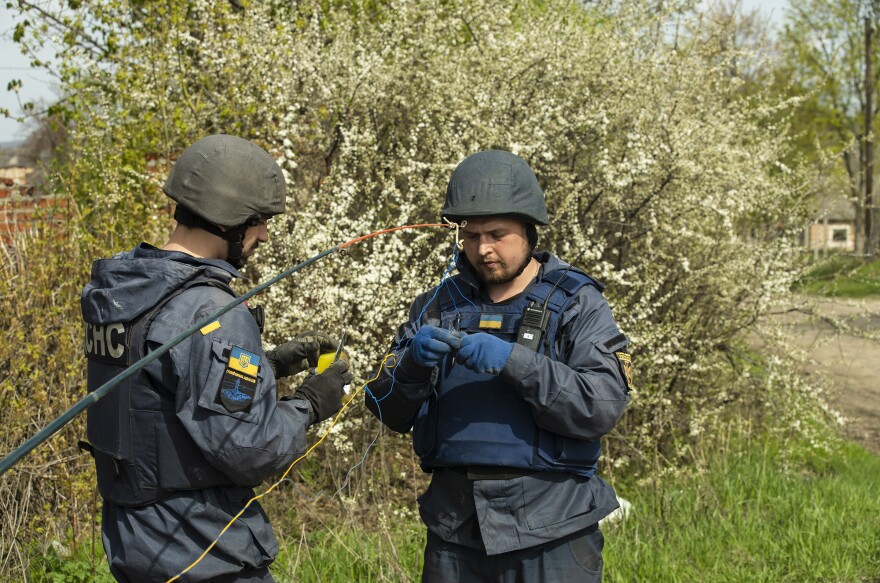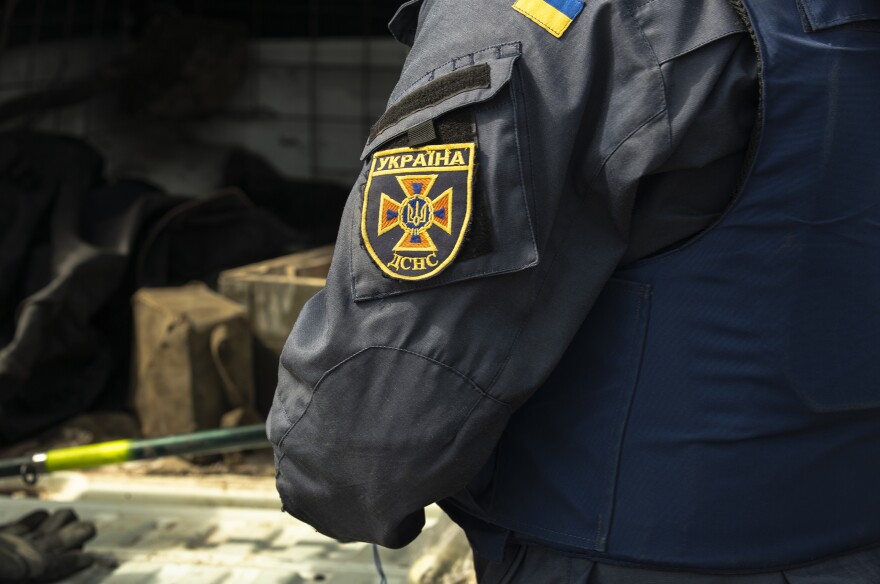Updated April 24, 2022 at 5:18 PM ET
BILASHI, UKRAINE — When the bomb squad arrives here, it is peaceful. The trees have new leaves; the fields are green.
One resident comes out of his house and shows NPR reporters a handful of shrapnel. When the bombs explode, he says, they fly through the windows.

He's on the verge of tears. "I cannot understand how a brother fights a brother," he says.
He walks away without giving his name, but his neighbor Yuri Yes'Kov explains that this little village not far from the Russian border in northeastern Ukraine has been shelled incessantly since March.
The night before, Yes'Kov says, a Russian rocket flew overhead, dropping bomblets all over the fields.
"One of them exploded today," he says.

What he is describing bears the hallmarks of cluster munitions, bombs that scatter over a wide area and blow up either on a timer or when something or someone goes over them.
They are banned internationally because they maim or kill indiscriminately, but human rights groups say the Russian military has been dropping them over Ukraine. Back in March, Human Rights Watch documented the use of cluster munitions in Kharkiv, just south of Bilashi. In a statement, Steve Goose, the arms director at Human Rights Watch, said that using cluster bombs in a populated area showed "callous disregard for people's lives."


When the bomb crew finish suiting up, they hang a charge on what looks like a fishing pole. They walk it slowly to one of the bombs, drop it on top and set it off from a distance.
Maksim, the deputy chief of the Kharkiv pyrotechnic department, who asks that we only use his first name to comply with Ukrainian government policy, says what they found here was a "PTM-1," a kind of Russian anti-tank mine.
As they get ready to blow up another mine, a small group of Ukrainian military servicemen show up in a pickup truck. They're a reconnaissance team. As soon as they fly a drone, the Russians begin to shell.

Yes'Kov, the resident, says it has been like this since the war began. A small group of Ukrainian troops show up; they leave and then the Russians start shelling their houses.
He shakes his head. His vegetable garden is now full of mines. His son has been fighting in the trenches and he can't seem to make sense of this war.
"We want peace," he says. "We don't want this shelling. We want peace."
Hanna Palamarenko contributed reporting.
Copyright 2023 NPR. To see more, visit https://www.npr.org.



